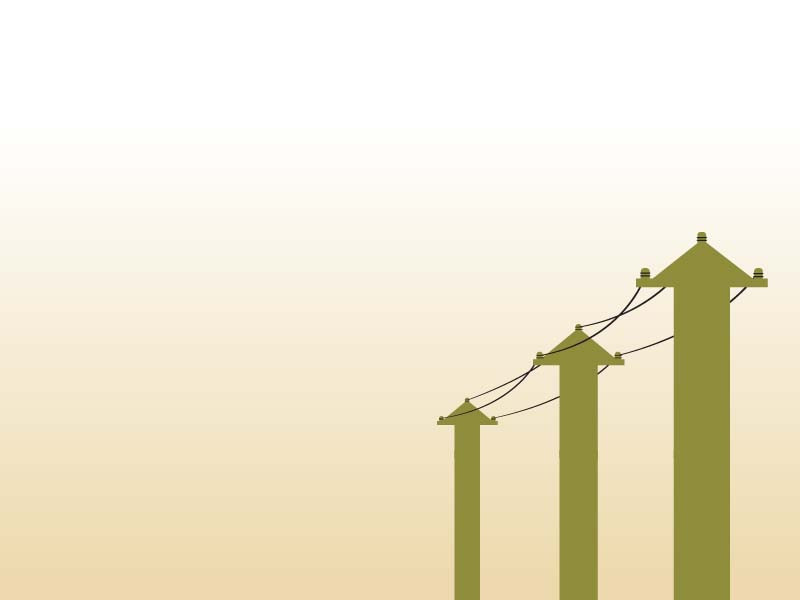
The National Electric Power Regulatory Authority (Nepra) on Wednesday indicated that it would increase power tariff by Rs0.50 per unit on account of second quarterly adjustment for fiscal year 2022-23.
The power-sector regulator conducted a public hearing, chaired by its Chairman Engineer Tauseef H Farooqui.
Nepra held the public hearing to consider an increase in power tariff of power distribution companies (DISCOs) for second quarter adjustment for fiscal year 2022-23.
Nepra members Engineer Maqsood Anwar Khan, Muthar Niaz Rana and Amna Ahmed were present in the hearing.
DISCOs had filed a petition for recovery of Rs17.391 billion from the honest electricity consumers under the quarterly adjustment.
Earlier, the power companies had filed petitions to recover billions of rupees from consumers on account of capacity charges, transmission charges, variable operation and maintenance charges and impact of transmission and distribution losses on fuel charges adjustment (FCA) for the first quarter (Jul-Sept) of FY 2022-23.
Out of the total quarterly adjustment of Rs17.39 billion, independent power producers (IPPs) will receive Rs1.19 billion from the consumers of Faisalabad Electric Supply Company (Fesco), Rs3.9 billion from the consumers of Gujranwala Electric Power Company (Gepco) and Rs2.06 billion from the consumers of Lahore Electric Supply Company (Lesco).
A huge amount will be paid to those IPPs that had been lying idle and were not operating.
Earlier, the consumers were being charged an average of Rs3.08 per unit under the first quarterly adjustment for FY 2022-23, which was applicable till March 2023, Nepra said in a statement.
“This adjustment will be applicable to the consumers of all DISCOs except for lifeline consumers,” Nepra said, adding that it would also not be applicable to K-Electric consumers.
Nepra announced that it would issue a detailed decision after further scrutiny of data.
It said that the increase in tariff would be recovered from power consumers in the months of April, May and June 2023.
During the hearing, the regulator expressed displeasure at the performance of electricity distribution companies.
Power Division requested the regulator to immediately pass on the increase in tariff to consumers without any delay. Nepra responded that consumers were already paying Rs3.58 per unit on account of quarterly adjustment.
The regulator also received an application from the Power Division, which proposed the imposition of a surcharge of over Rs3 per unit on the electricity consumers who were already paying their bills regularly.
“Don’t oppress consumers like this,” remarked the Nepra chairman. “The difference in transmission charges has been higher in this quarter,” he said.
“Had these been not there, the amount of Rs11 billion would have been reduced,” the chairman said.
Peshawar Electric Supply Company (Pesco)’s capacity charges were in the negative, he pointed out, adding that the company’s consumers had also complained about load-shedding.
“Pesco is saying it is not using full electricity, so there is a mess somewhere,” he remarked.
Farooqui added that IPPs were receiving money on account of capacity charges but consumers were not being provided electricity and were facing load-shedding.
Nepra sought a detailed report from Pesco on the non-utilisation of electricity to its full capacity.
“Don’t control distribution losses and do load-shedding, it’s a very easy solution,” Nepra member from Khyber-Pakhtunkhwa said.
The chairman pointed out that they did not implement the report on blackouts released by the regulator.
Power distribution companies would increase electricity prices in the months of April, May and June, Nepra said.
Power Division demanded an increase in electricity rates for the months of March, April and May 2023.
Published in The Express Tribune, February 23rd, 2023.
Like Business on Facebook, follow @TribuneBiz on Twitter to stay informed and join in the conversation.

1725443747-0/Untitled-design-(5)1725443747-0-405x300.webp)


1724238420-0/Untitled-design-(3)1724238420-0-165x106.webp)






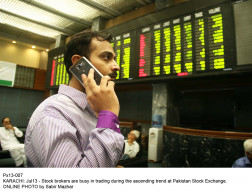
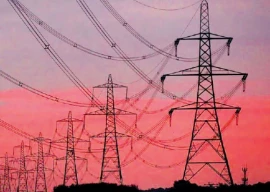
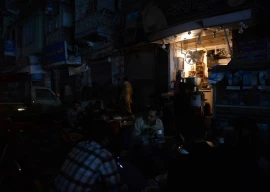
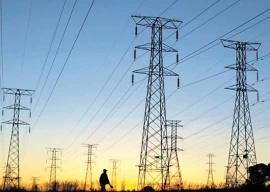







COMMENTS
Comments are moderated and generally will be posted if they are on-topic and not abusive.
For more information, please see our Comments FAQ